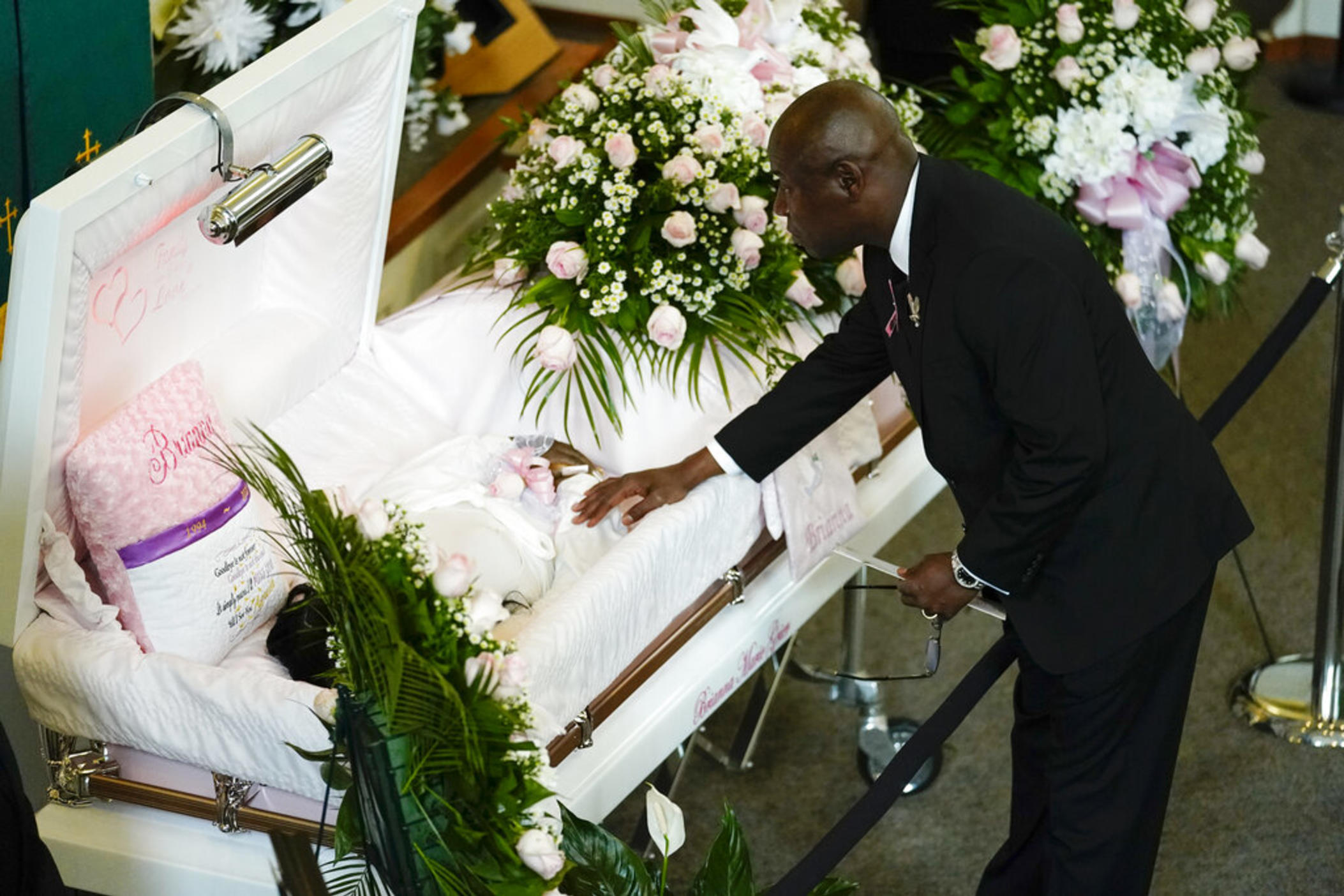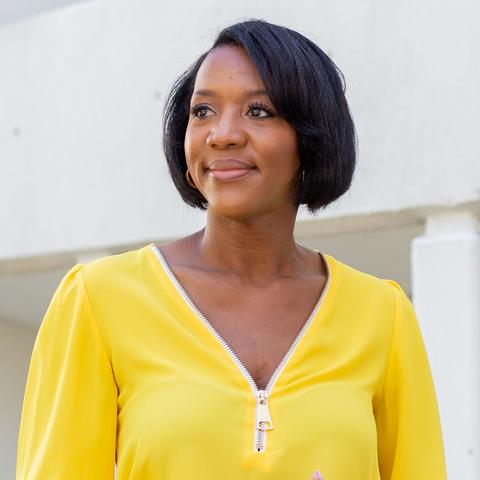Section Branding
Header Content
Could calling 988 instead of 911 have saved Brianna Grier?
Primary Content
LISTEN: Andrea Brown, executive director of the Black Mental Health Alliance, says Black families dealing with a mentally ill loved one cannot depend on police for help.
———
Mental illness should not be a death sentence.
That is the thought of so many people whose loved ones have been killed by police or die in police custody after calling for help. On Thursday, the Reverend Al Sharpton eulogized Brianna Grier in an Atlanta church. The service was followed by a march to the state capitol to push for justice for Grier.
The 28-year-old Black woman was having a mental health crisis last month when her family called police to their home in Hancock County for help. Sheriff's deputies handcuffed Grier and put her in a patrol car with no seatbelt on. They failed to close the passenger door before they drove off. Brianna fell from the moving vehicle. She died a few days later. A doctor who reviewed medical records at the request of Grier’s family said that she died of severe blunt force trauma to the head.
GPB’s Morning Edition host Leah Fleming spoke with Andrea Brown, executive director of the Black Mental Health Alliance in Baltimore, Md., and asked whether she thinks the family did the right thing by calling police for help.
Andrea Brown: I think we must change the narrative, so people know what the right thing to do is. We can't call law enforcement to help. We have to change the narrative, so we don't call the police first. We look for a mobile crisis team. We call 988 for a crisis team to be able to walk you through something to help.
Leah Fleming: You mentioned that new number, 988, which is supposed to be a lot like calling 911, except you're calling specifically for mental health. Does that number work for crisis as well — if someone is in crisis?
Andrea Brown: It does. And that — that's what people don't often understand. And that may be because it's new. And we're asking people to do something different than what they've done before. I think, quite frankly, states and cities across the country have to have mandatory mobile crisis teams for situations just like this. We assume that the police are going to protect us, but that's not what they're trying to do. They don't know about crisis like that. That's not their training. And so we really set our families up for this kind of outcome.
Andrea Brown is the executive director of the Black Mental Health Alliance. You can find more information and resources at their website Blackmentalhealth.com
RELATED: Political Rewind: Where Georgia stands with mental health; 988 line; Jody Hice in Fulton probe
The Georgia Bureau of Investigation says that the case remains under investigation and that it is conducting its own autopsy of Brianna Grier's body. If you or someone that you know is in need of help, the number to call is 988.


